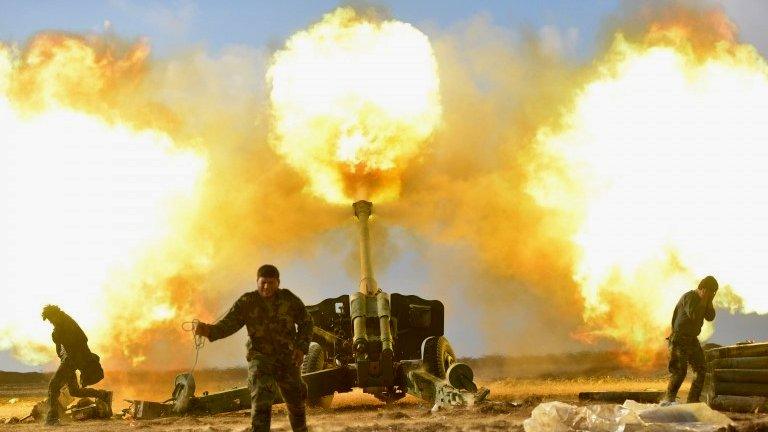Mosul battle: Fierce fighting as Iraqi troops push into Old City
- Published
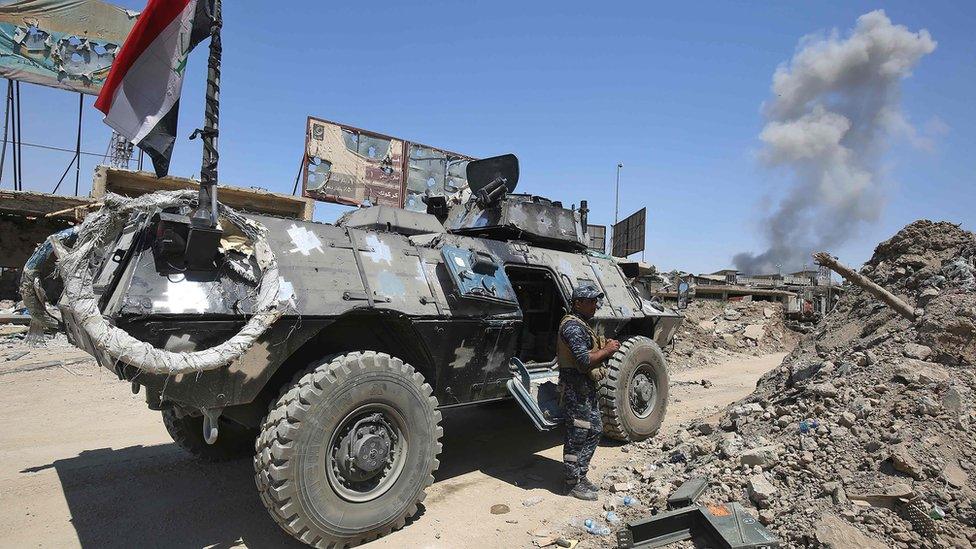
Mosul is so-called Islamic State's last major urban stronghold in Iraq
The last Islamic State militants in Mosul are reportedly putting up fierce resistance as Iraqi forces try to seize their final stronghold in the city.
One commander said penetrating the jihadists' defences was very difficult, as they had blocked all entrances to the area and booby-trapped houses.
Overnight, aircraft dropped leaflets urging civilians to avoid open spaces and to take any opportunity to escape.
The UN says IS may be holding more than 100,000 people there as human shields.
Pro-government forces launched an offensive to retake Mosul in October with air and ground support from a US-led coalition.
They managed to take full control of the eastern half of the city in January and started an assault on the west the following month.
On Sunday, commanders announced the start of the "final chapter" of the offensive, with Counter-Terrorism Service, Army and Federal Police attacking the Old City from all directions.
The army believes that there are no more than 300 militants left in Mosul, compared with almost 6,000 at the start of the offensive in mid-October.
Iraqi federal police engaged in fierce gun battles
However, the densely populated Old City's narrow streets - Mosul's historic heart - mean the assault will be a major challenge, with troops having to clear the area house by house.
On Monday, Gen Maan al-Saadi of the Counter-Terrorism Service told AFP news agency his troops had made progress in the Farouq district, but that resistance had been "fierce".
"Penetrating was very difficult," he said. "Today the fighting is face to face."

Iraqi Kurdish journalist Bakhtiyar Haddad was killed and three French journalists were wounded by a bomb explosion as they reported from inside the Old City, Later, the Iraq-based Journalist Freedoms Observatory said, external.
The International Committee of the Red Cross meanwhile warned, external that the flow of injured civilians out of western Mosul had increased in recent days, with about 90% of victims having wounds from gunshots, shelling and bombs.
"For a heart-breakingly high number, it was simply too late; they died soon after reaching us," said Dr Julia Schürch, an emergency room specialist based there.

Water revives fleeing child
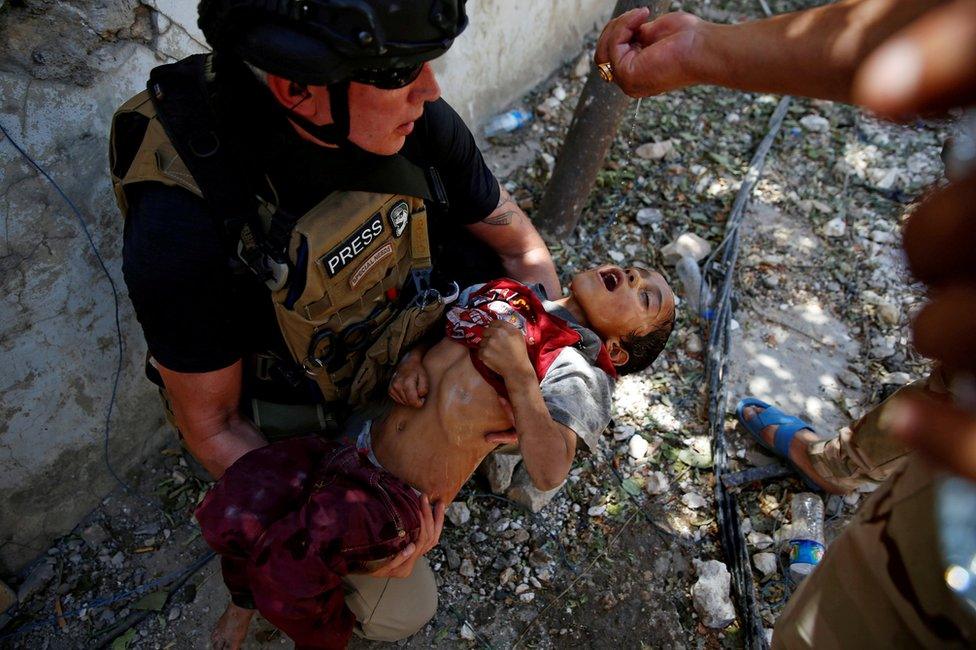
Reuters journalist Erik De Castro was at the frontline last Tuesday when civilians began fleeing the Old City by scrambling through a hole in a wall.
"With mortar shells exploding all around, an Iraqi soldier passed one small boy of probably no more than seven through the hole unconscious, his head lolling back, his gaunt-looking body unnaturally hot," he writes, external.
"Tim, our security adviser, received him and, fearing the boy was suffering from dangerous heat stroke, carried him across the broken ground to find shade.
"The boy came round and started crying, and soldiers came to pour water on his head, chest and feet to cool him down. He gulped at the sips they gave him to drink as they found him a blue-coloured rug to lie on."

On Sunday, the International Rescue Committee, an aid group, warned, external that this would be "a terrifying time" for civilians trapped inside the Old City.
"With its narrow and winding streets, Iraqi forces will be even more reliant on air strikes despite the difficulty in identifying civilians sheltering in buildings and the increased risk of civilians being used as human shields by [IS] fighters," it said.
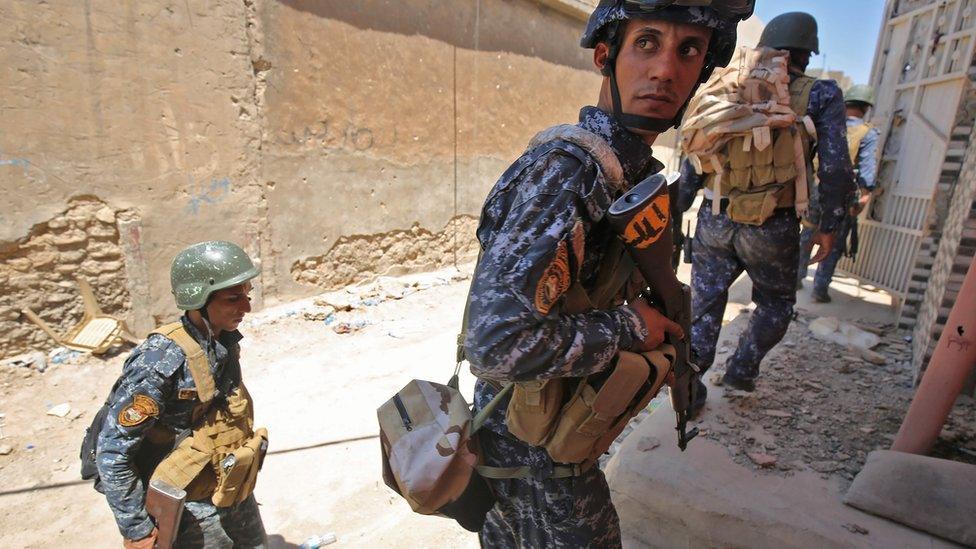
Troops are having to clear the densely-populated Old City house by house
"The buildings of the old town are particularly vulnerable to collapse even if they aren't directly targeted, which could lead to even more civilian deaths than the hundreds killed so far in air strikes across the rest of the city."
Gen Saadi told state TV on Sunday that troops were "trying to be very careful, using only light and medium weapons" to avoid civilian casualties.
The IRC also warned that civilians attempting to flee the fighting faced significant risk of getting caught in the crossfire or being targeted by IS snipers.
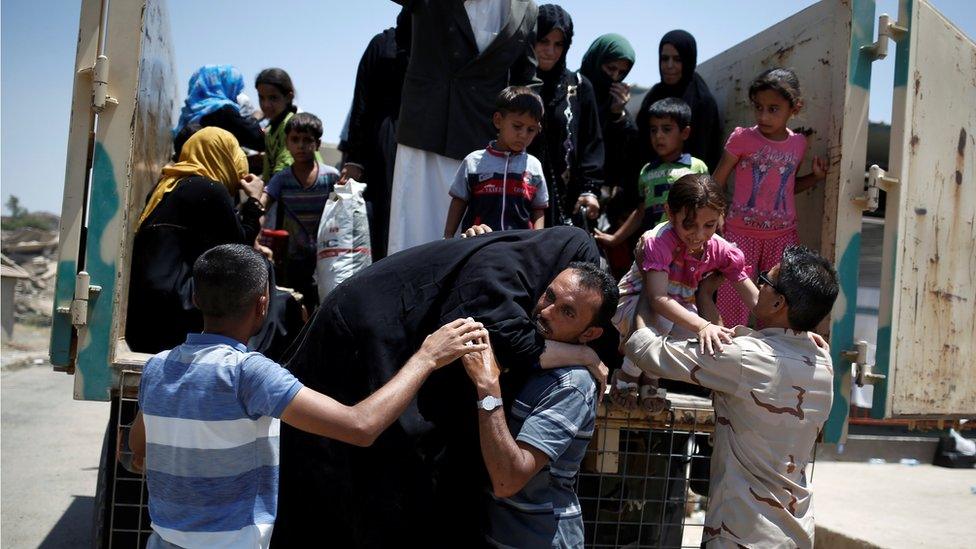
More than 860,000 civilians have been displaced since the start of the offensive
Civilians unable to flee the Old City are meanwhile facing "desperate conditions", with little food and no clean water, according to the UN.
Since the start of the battle for Mosul, an estimated 862,000 people have been displaced. About 195,000 have since returned to their homes.
- Published16 June 2017
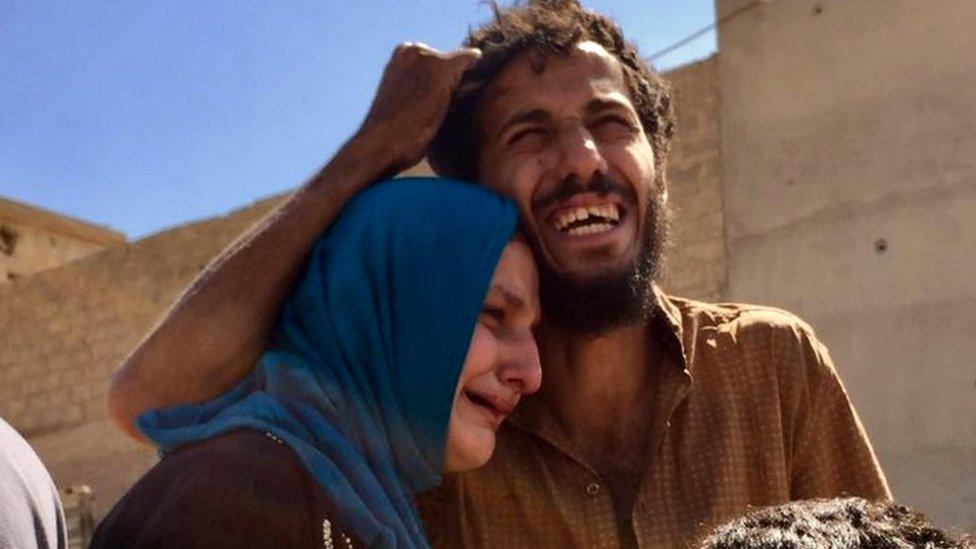
- Published10 July 2017
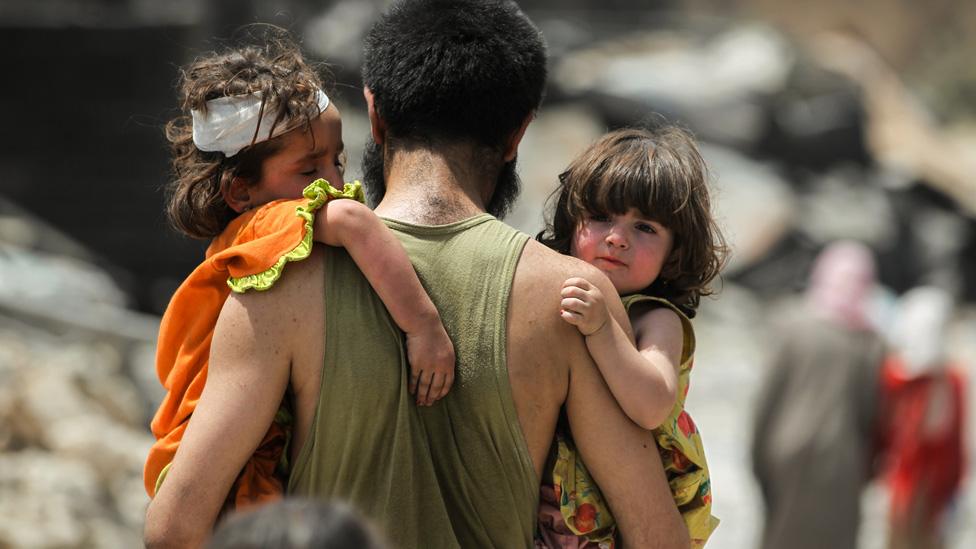
- Published20 February 2017
